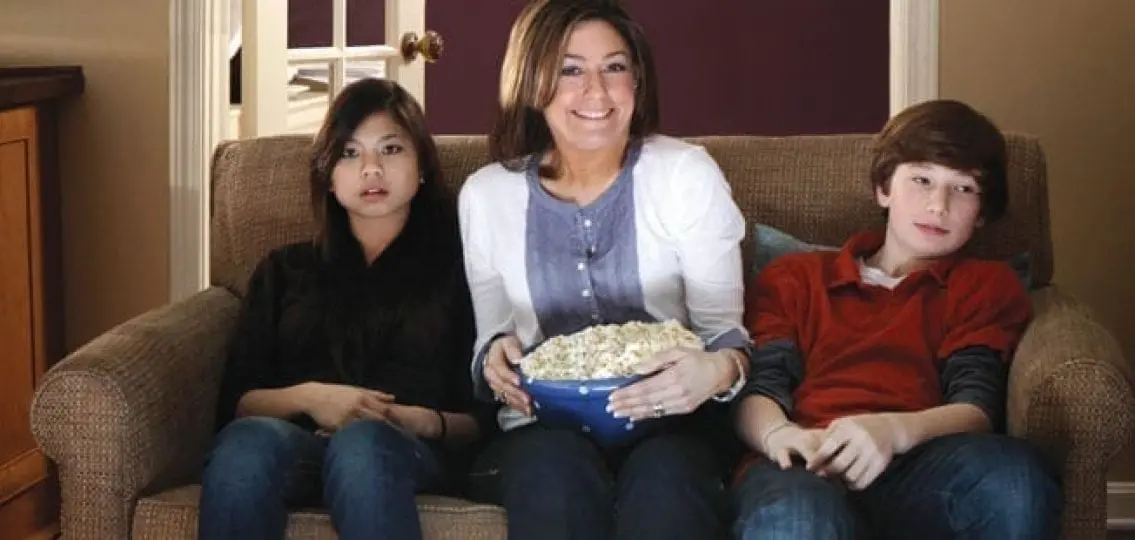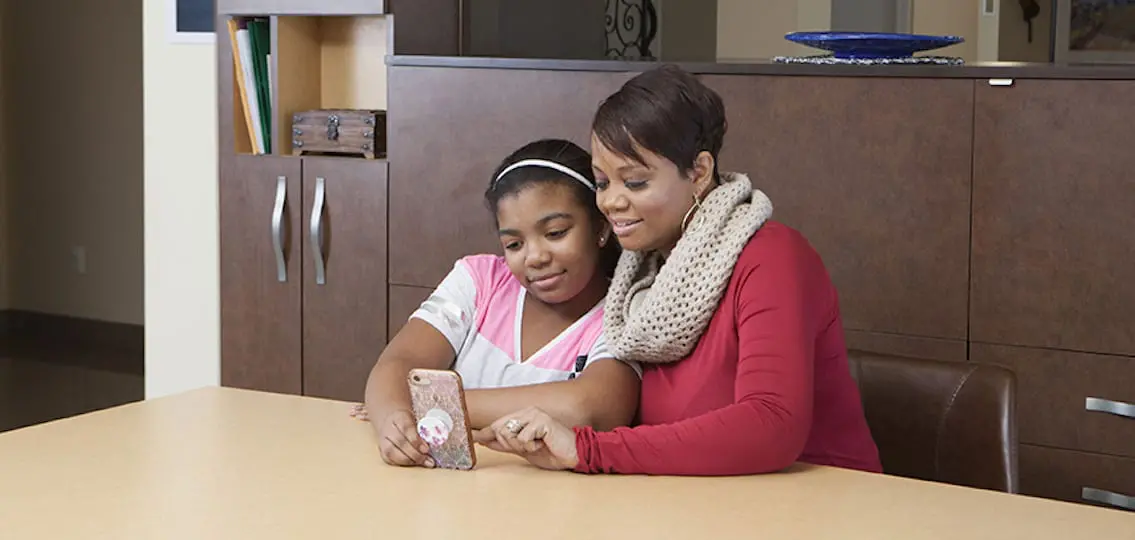In many ways, the way we talk about sex with our teenagers hasn’t changed much from the way our parents talked with us when we were teenagers. But it’s time to update the conversation, says Peggy Orenstein, the author Girls & Sex: Navigating the Complicated New Landscape. We recently caught up with Peggy Orenstein —also the author of the bestselling Cinderella Ate My Daughter—to find out more.

Q: In your book, you write about a study comparing sexual behavior in Dutch and American teenagers. Can you briefly explain the results of the study?
Orenstein: Dutch parents, teachers, and doctors talk very openly to young people about sex. One of the biggest differences is that while American and Dutch parents are equally comfortable talking about sex, American parents stress risk and danger exclusively, while Dutch parents talk about those things, but also about the pleasures of sex, masturbation, orgasms, and communicating with your partner.
Q: How did those different approaches impact their daughters?
Orenstein: All of the negative outcomes are reduced among the Dutch compared to the Americans. So having sex drunk or getting pregnant, for example—both are way lower among the Dutch. Meanwhile, all the positive outcomes, like feeling control over the experience, feeling that you could communicate with your partner, knowing your partner very well, feeling pleasure in the encounter, feeling good about your body—all those things that we want for girls—were way better among the Dutch.
Q: What should parents take away from these studies?
Orenstein: I thought, previously, that if I talked to my daughter about contraception, disease prevention, and consent, that my job was done. Now I know that I have to shift the discussion. In Dutch families, kids are supposed to mature within the family unit. They talk about sex openly, which allows parents to exert what sociologist Amy Schalet called “soft control”: they can use those occasions to reinforce values, ethics, care, all those things. I was deeply moved by that; I thought—these conversations are not scary, horrible, or embarrassing, but rather an opportunity to connect with our children and be closer with them as they mature.
Q: Many of the girls you interviewed described sex as painful, humiliating, even demeaning.
Orenstein: Yes, in research when girls talk about bad sex, they used those words: painful, humiliating, degrading, demeaning, depressing. And boys in the research never used those words; bad sex for them was not having an orgasm or being too drunk to get it up. But it’s never painful, humiliating, degrading, demeaning; those are specifically words that girls use. And girls report pain 30 percent of the time in their most recent sexual encounters that included vaginal intercourse and 70 percent of the time if it included anal intercourse.
Also, according to research, girls are more likely than boys to use their partner’s pleasure as the measure of their satisfaction. “He’s satisfied so I’m satisfied.” Whereas boys are more likely to measure satisfaction by their own pleasure. They’ll say, “I had an orgasm so I was satisfied.” If, then, girls go into an experience thinking, “I hope this feels good, I hope he has an orgasm, I hope it doesn’t hurt, I hope I’m not humiliated,” then they will be satisfied if those conditions are met. Which may be why in research young women tend to report equal satisfaction rates to young men.
Q: It sounds like many of the girls you interviewed don’t feel a sense of entitlement when it comes to sex?
Orenstein: In the book, I talk about “intimate justice,” a phrase coined by a psychologist at the University of Michigan. It’s the idea that, just like who washes the dishes in your house has a political dimension, so does sex. Intimate justice asks: who is entitled to engage in a sexual experience, who is entitled to enjoy it, who is its primary beneficiary, and what “good enough” means for each partner.
Q: We hear a lot about hookup culture. What’s your take?
Orenstein: The hookup culture is about feeling-less sex. Young people do that by getting drunk; otherwise they might “catch feelings,” as if it’s a disease. Not caring is the ultimate goal. It wasn’t my job to say the “correct” context in which girls should have sex, but I did want them to understand what they were likely or not likely to get out of a hookup. They are likely to get an adrenaline rush, an adventure, a war story, a warm body. But they should know they are a lot less likely to get good sex or the tools they’ll need to create either good sex or intimacy.
Q: Do you think that the hookup culture automatically disadvantages girls?
Orenstein: I don’t want to treat girls as victims and the way we traditionally talked about casual sex risks stigmatizing girls. There were girls who came in, sat down and said, “I love the hookup culture. Don’t treat me as a victim; I’m doing this for me. I don’t want to be in a relationship. I want to focus on myself and my friends, and I want to have sex, and this is how I’m doing it.” I just want girls to know what the hookup culture looks like. And I want parents to understand so we can educate our kids to have experiences that are safe, responsible, ethical, reciprocal, and enjoyable.
Q: What about boys?
Orenstein: There are also many boys who would like to be in a relationship. A professor I followed surveyed 120 male and female students in her classes. When she asked whether they thought their peers were interested in relationships, nearly all said no, their peers just wanted to hookup. But when she asked, “Well what about you?” the vast majority said they did want a relationship. So there was a disconnect between what people imagined others wanted versus what they actually did want.
Q: Where do we start? The idea of talking about sex the way the Dutch do will be challenging for many American parents.
Orenstein: On one hand, I can tell you if you practice, if you start, it will get easier. And using interviews like this one as a jumping off point, or books like mine, is great. But if you really can’t do it—ask a girlfriend, an aunt, or whomever. I have a friend who thought her daughter was considering having intercourse, so she wanted me to talk to her. I took her to lunch. Was it uncomfortable? Yes. I wanted the floor to open up and swallow me. But I did it.
I said, “Look, I know that you’re thinking about this,” and we talked about protection and all that. I asked her questions but didn’t expect answers. Have you masturbated? Have you had an orgasm on your own? Do you feel comfortable talking to your partner about what you want and don’t want and how far you want to go? If you answer ‘no’ to any of these questions, what do you want out of intercourse? How do you think about creating a mutual, reciprocal, satisfying, communicative, caring, sexual relationship? She didn’t say much. But years later, we still talk all the time and when she has concerns about her sex life, work, school, or whatever, she calls me.

Q: Do you think Girls & Sex will change the conversation?
Orenstein: I wrote Girls & Sex in part to inspire conversation between parents and their high school or college-age daughters. If your daughter reads it and doesn’t want to talk about it, she is still getting information that will challenge what she is learning in popular culture that will potentially shift how she behaves and what she thinks about sex.




